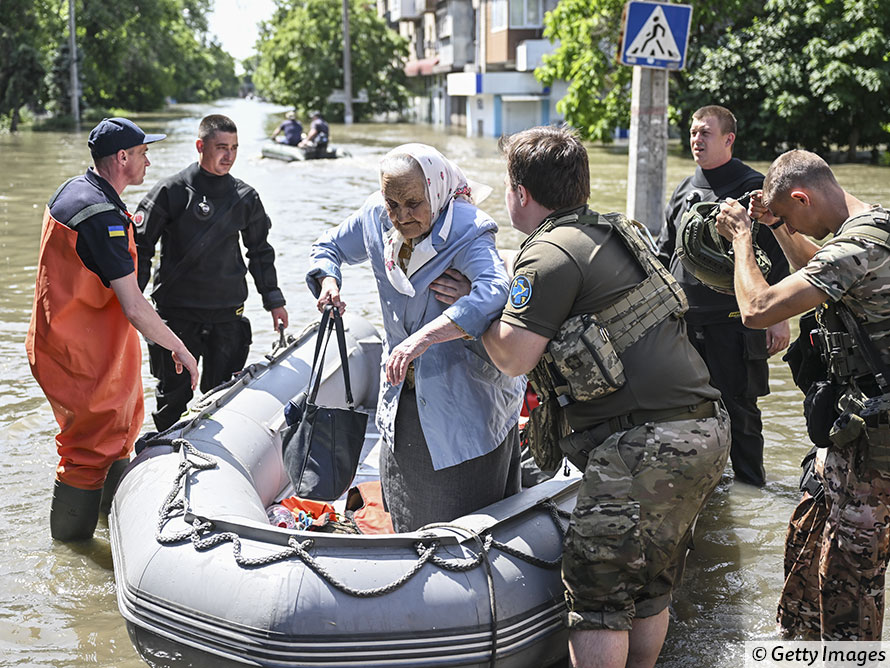Is this a huge victory for Russia? Biblical floods surge forth from the Nova Kakhovka dam, forcing tens of thousands of Ukrainians to leave their homes. Some believe this could be a decisive Russian success.
Catastrophe in Ukraine as dam is blown up
 Words and water: Russia is accused of "floundering in the mud of lies" over its denial of responsibility.
Words and water: Russia is accused of "floundering in the mud of lies" over its denial of responsibility. Glossary
Soviet - Relating to the Soviet Union, a powerful group of communist republics, the biggest being Russia, that existed from 1922 to 1991.
Red Army - Over four million German soldiers were killed fighting the Soviet Army between 1941 and 1945. Russian casualties are estimated at close to 11 million.
Lenin - A Russian communist revolutionary and first head of the Soviet Union who rose to prominence during Russia's 1917 revolution.
Nazi - A German political party of the twentieth century, led by Adolf Hitler. The Nazis controlled Germany from the early 1930s until the end of World War II.
Kremlin - A central fortress in a city, used to refer to a complex in Moscow with five palaces and four cathedrals. The Russian government is run from within this citadel.
Crimea - A peninsula in southern Ukraine that was seized by Russian forces in 2014 and annexed to the larger country.
Counteroffensive - A set of attacks to defend against attacks from an enemy.
Infrastructure - The basic systems and services that a country needs to keep it going.
Chernobyl - The disaster, in 1986, involved a meltdown at a nuclear plant in Ukraine.
Black Sea - A sea between Europe and Asia, with coastline in Russia, Ukraine, Turkey, Bulgaria, Georgia and Romania.
